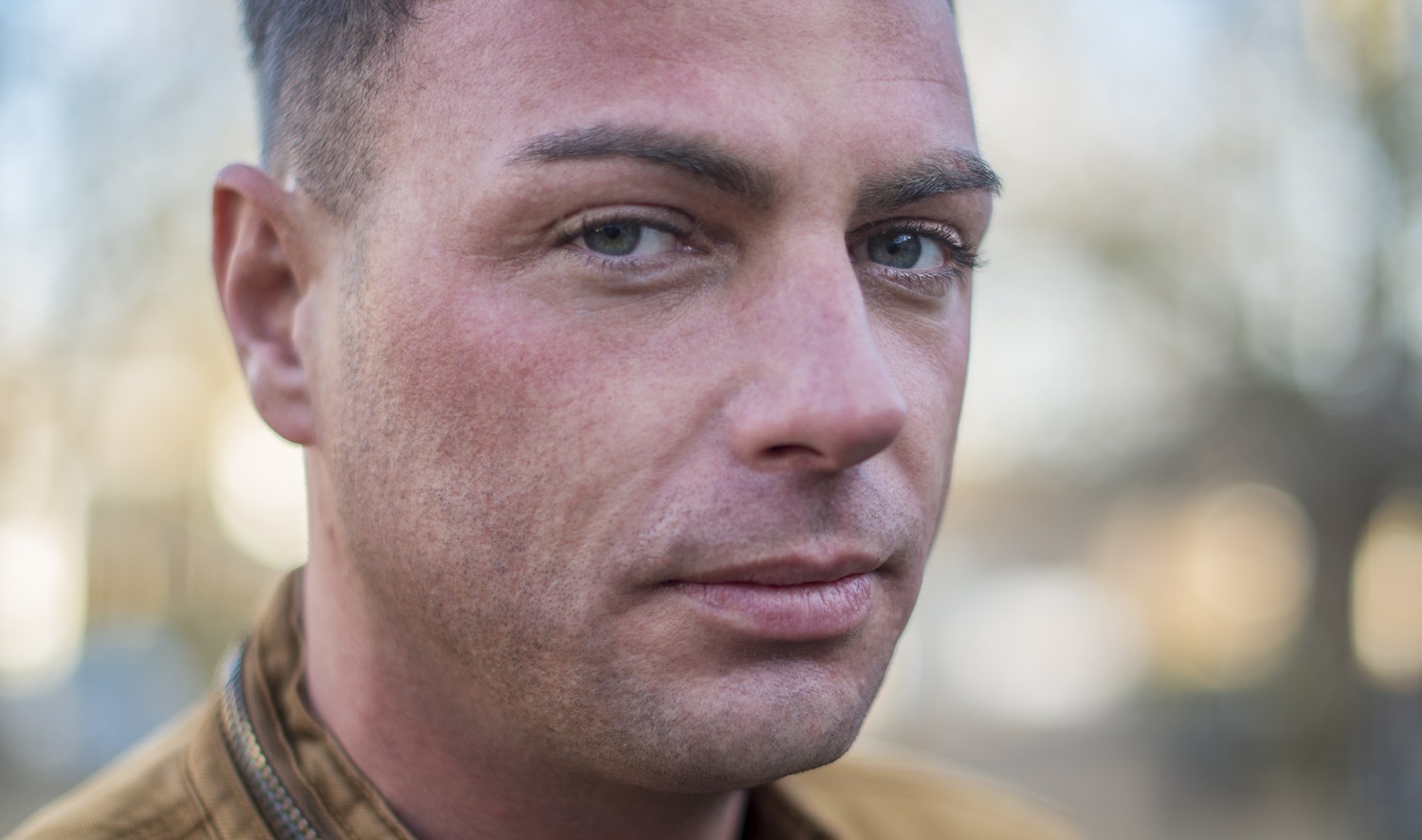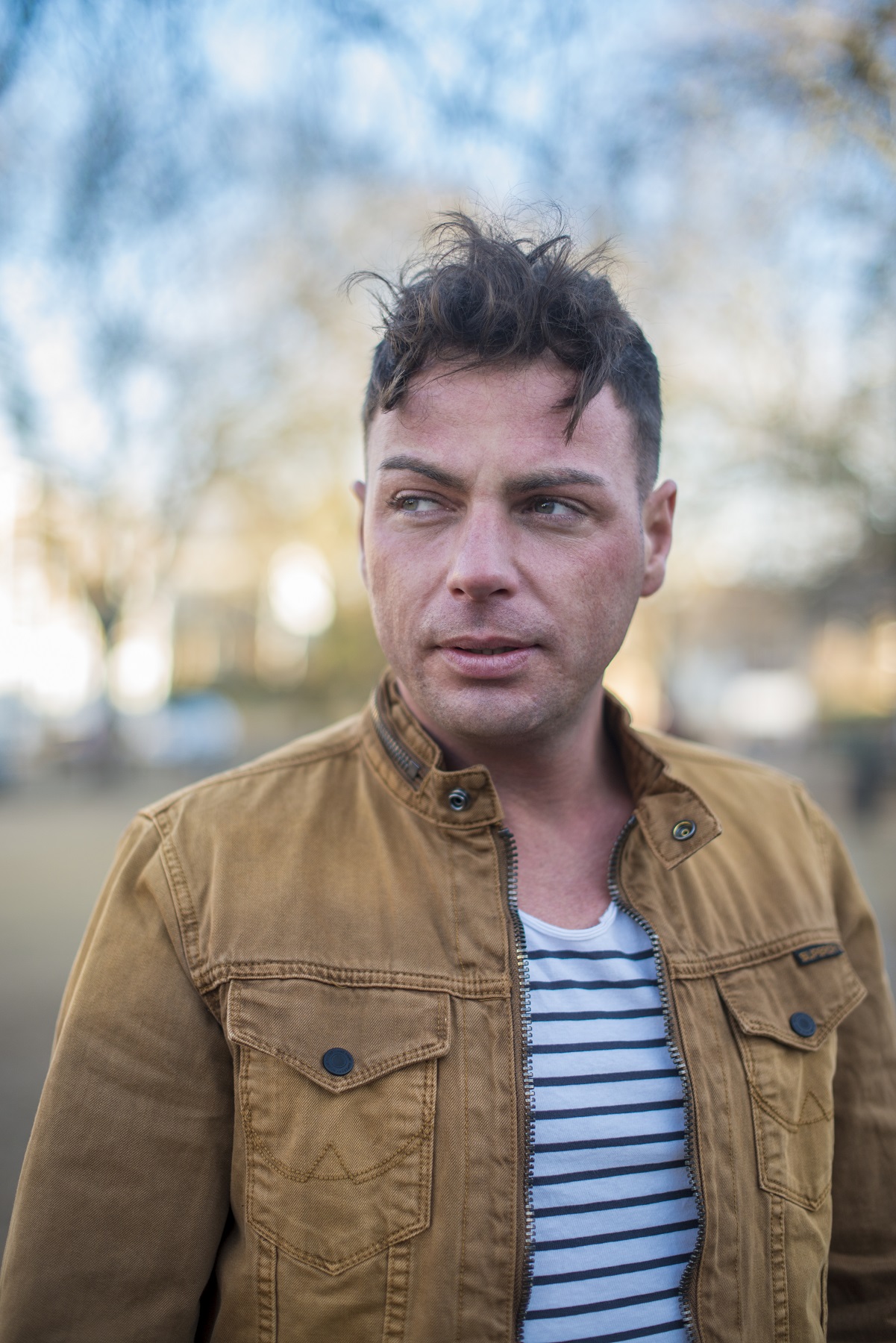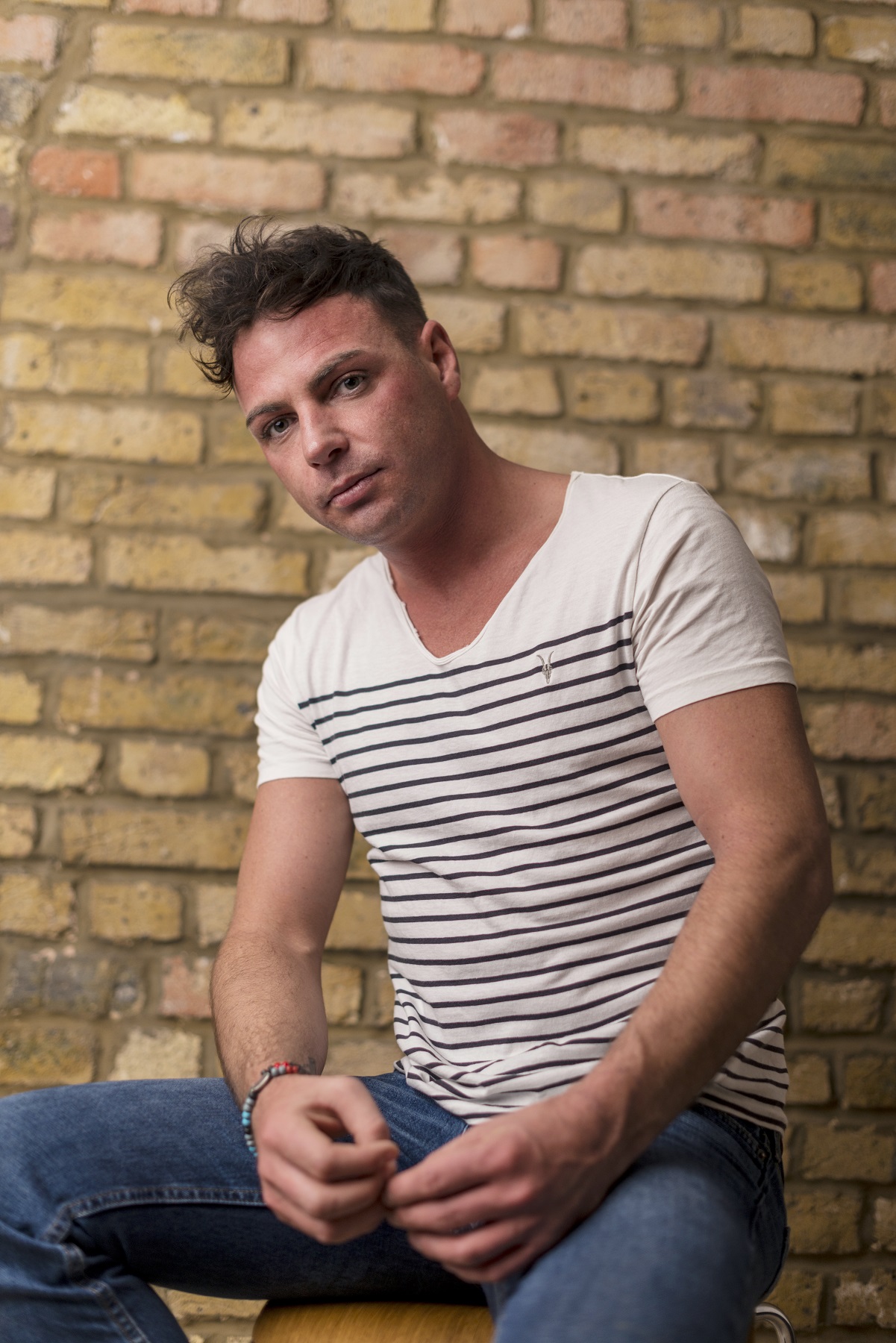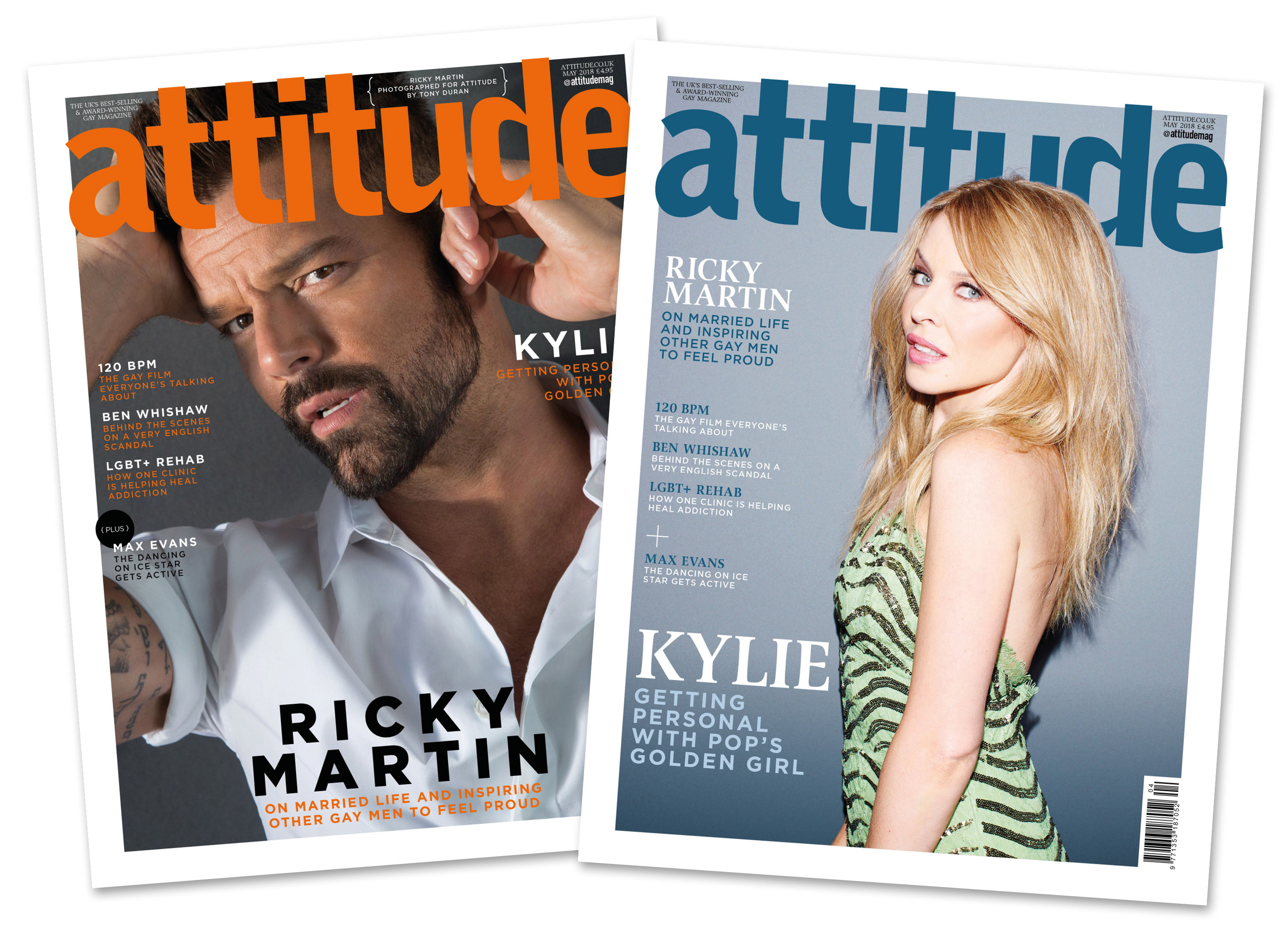What’s it like to come out as gay in the Traveller community?
"I’ve been battered, bruised and nearly killed."
By Will Stroude

This article first appeared in Attitude issue 294, April 2018
Since coming out four years ago, 28-year-old Irish Traveller Patrick Connors has been ostracised from his community and was almost bludgeoned to death. But in the hope that his story of survival might help others, he’s decided to share it.
I’ve known I was gay since I was six years old, but growing up in the Irish Traveller community made it very difficult for me to come out. Homophobia is rooted within the culture of Irish Travellers; it’s a dark and secret world, and when people step out of line, they tend to get beaten up.
I grew up knowing that being gay was not something that most travellers would tolerate and that telling anyone about it would put me at risk. So until I was 24, when I came out to my parents, I lived a lie.
For many years, I worked in Brussels with a group of other travellers and they’d force me to go into the red-light district and try to get me to go into brothels. “You’re not a bad-looking boy, we’re going to get you some women,” they’d say. I used to be terrified, but I’d pay €50 and I’d go into one of the brothels. I wouldn’t have sex but I’d make it look as though I had — I’d sit and smoke a couple of cigarettes, then I’d open my shirt a bit and I’d ask the lady to put a bit of oil on the back of my neck to make me look sweaty. Then I’d walk out and the lads would applaud me.
One night, I’d worked up the courage to slip away from the group and head to the city’s gay district. It was a Saturday night and I went into a tiny gay bar. I started drinking very fast. Soon, I broke down and began to cry. This guy walked over and started talking to me in Belgian. I said: “Sorry, I’m English.” He replied: “Ah, I speak English. You’re a nice boy, why are you sitting here alone and crying?”
It turned out he was the owner, so he called one of his staff over to bring him a beer and listened as I told him my life story. We sat together drinking for many hours and he convinced me that it was time to tell my parents. My mobile was dead, so I used his to call my mother. She was in bed but she answered the phone. I choked — I couldn’t get the words out, and I was crying. “Mum, I’ve got something to tell you, but I can’t say it,” I stuttered. I finally got it out: “Mum, I’m gay. What am I going to do?”
She replied: “It’s absolutely fine. I love you, I’ve always loved you. I knew you were hiding something, I could see it in your eyes. Your dad’s asleep, don’t worry about him, I’ll tell him — he’ll be fine. Just don’t do anything stupid. We’ll come out to Belgium. I’m so proud of you for telling me, but why did you hide it all these years? If you’d told us when you were younger, we could’ve put something in place for you but it’s not too late.”
She then spoke to the owner of the bar and asked him not to let me go back to the campsite in the state I was in, so he let me stay in his apartment above the bar.

Photography: Markus Bideaux
The next day, I was hungover and having a beer downstairs around lunchtime when my mum and dad walked in. They’d called the guy back and told him they were coming to surprise me and asked him to keep me there as long as possible.
I almost had a heart attack and I was embarrassed because I hadn’t told my dad and I didn’t know how he was going to react. He just gave me a hug and said, “I love you. You’re my son, that’ll never change.”
We all got drunk and my mother and I danced to George Michael and Mary J Blige. My dad had tears in his eyes. He said: “I can finally see that you’re happy, that this is you.”
After that, we kept it in the circle of trust to begin with — just the close family. My parents told my sisters and my older brother. He was funny about it for a while but he’s come around since then and I get a lot of support from them all.
But it was a different story among the wider Irish Travelling community. Last autumn, I was at home in Surrey, when I was attacked after I’d been out for dinner with a friend. A group of men entered my property, wearing balaclavas and gloves, and attacked me with a hammer and some sort of blunt object, maybe an iron bar.
I live in a log cabin and I was watching TV with the door behind me. They ripped it off its hinges and went for me. My head was cracked open and I was lying unconscious in a pool of blood, left for dead. They thought they’d done the job, finished me off. When I came round, I was in hospital.
It’s still an ongoing investigation; one man was arrested before being released because there was no evidence — there was no CCTV footage and no DNA was found at the scene.
Since the attack, I’ve had help from a charity in the south-west of England that looks after young people who’ve left home because of their sexuality, or for drug and alcohol abuse. I moved there for a few weeks and they helped me get things back on track and made me feel confident about telling my story like this.
The travelling community is notoriously homophobic. If you’re known to be gay, other men avoid you — they won’t sit with you in a restaurant, they wouldn’t get in a car with you. If they did, it’d be assumed that they were shagging you and they’d be tarnished for the rest of their life.
There are travellers everywhere, so wherever I go, if I’m seen walking down the street with a man, holding hands or kissing him, someone will take a photo of me and post it online. I’ve had to change my number three times but my mother gets calls from people saying that there’s something online about me that everyone’s sharing. I say to her: “Mam, give it a few weeks, it’ll blow over.” Then someone makes up another story — about who I’ve been with. I don’t sleep around, I respect my body but I’ve been accused of all that.

Photography: Markus Bideaux
By the age of 19 — sometimes much younger — most travellers are married. I know other gay travellers who have married girls just to escape suspicion. That’s not who I am, I don’t want to break a young girl’s heart. I couldn’t marry someone, then sneak off with men behind her back.
An older member of my community is gay and has never married or had a partner. He’s in his fifties and was beaten up for many years. I went to see him a while ago and we went out for some food.
He’s an alcoholic and I don’t want to end up like him. I want to find a partner and get married one day.
If I could press a button now to make me straight, I wouldn’t do it. I’m very proud of my sexuality and that’s what a lot of people don’t like.
It’s a shame I’ve had to remove myself from that community but how could I stay with people who direct so much abuse at me every day? And although I’m still at risk of being attacked by other travellers, I’m looking forward to life now.
I can see opportunities and light at the end of the tunnel, Yes, I’ve been battered, bruised and nearly killed, but I’m still here.
When I woke up in hospital, I thought, “Well, they didn’t manage it. They didn’t kill me.” That’s when I decided that this wasn’t going to stop me; it was going to make me stronger.
You can’t give up on life, you have to grab it with both hands. God loves a trier and I’m a trier. I’m going to try to shine the best way I can.
Selected back issues of Attitude are available to download here.

